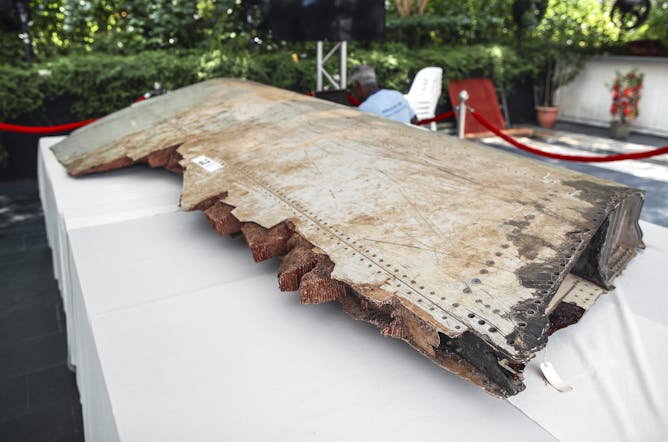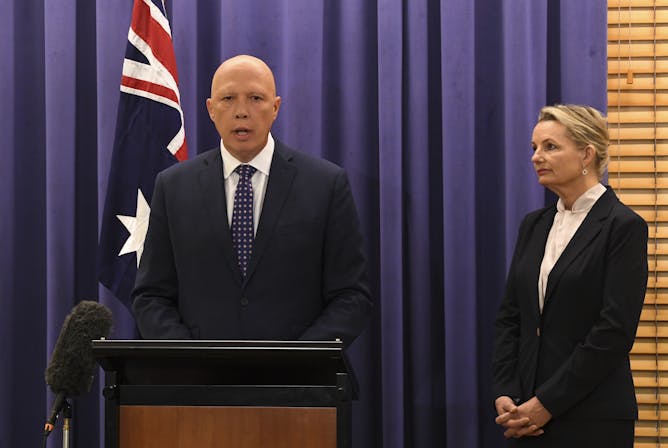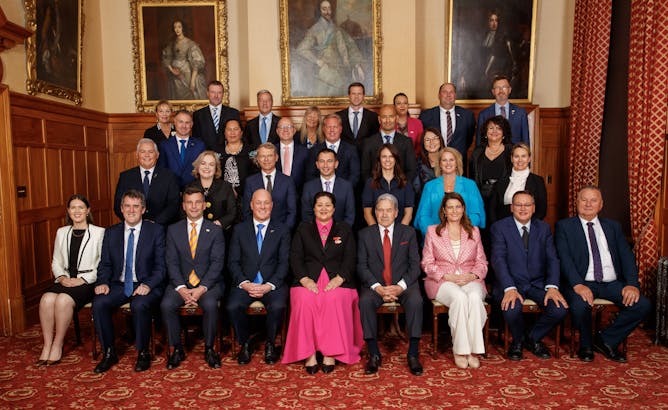|
This week marks the ten-year anniversary of one of the greatest aviation mysteries. A large Boeing 777 jetliner with 239 people on board left Kuala Lumpur – and never arrived at its destination in Beijing. The fate of the Malaysia Airlines flight MH370 remains unknown to this day.
What we do know is that after an unplanned change of course, the flight tragically crashed somewhere in the Andaman Sea, which is part of the northeastern Indian Ocean. This was confirmed by data from military radar and from telecommunications satellites.
Over the years, several extensive air, surface and underwater searches failed to locate evidence of the main crash site or any bodies of the victims. But we do know the plane crashed into the ocean, as several pieces of confirmed debris have been found on beaches near the coast of southeast Africa.
Oceanographer Charitha Pattiaratchi was part of the computer modelling team at the University of Western Australia that accurately predicted where floating debris from MH370 would wash up. “To date, these debris finds in the western Indian ocean are the only physical evidence found,” he writes.
Ten years on from the crash, could we still find the main wreckage site and find out what happened? In a remembrance event held this week, the Malaysian transport minister promised a push for a new underwater search. Technology has advanced in recent years, and the target area has been narrowed down.
As Pattiaratchi explains, the potential search location is deep, with cold waters and low currents, so the crash site could still be relatively intact. For families of those who perished and the thousands of people involved in the search efforts, the wait is not over. And an answer could still be within reach.
|

|
Signe Dean
Science + Technology Editor
|
|

Charitha Pattiaratchi, The University of Western Australia
It remains one of the biggest aviation mysteries – the tragic disappearance of passenger flight MH370. But a new, targeted search of the seabed could still yield answers.
|

Donald Rothwell, Australian National University
The war has resulted in a flurry of legal proceedings in international courts. Some cases have merit, while others are very weak.
|

Michelle Grattan, University of Canberra
Peter Dutton’s minor cabinet reshuffle, paired with the announcement of his nuclear energy policy, makes it hard to decide whether Peter Dutton is a gambler at heart or ultra-cautious.
|

Michelle Cull, Western Sydney University
Negative gearing is popular because it lowers home owners’ tax bills. But its critics say it has reduced affordable housing stock keeping the less well off out of the market.
|

Andrea Carson, La Trobe University
Third-party fact checking appears to be in decline around the world - and Australia is not immune.
|

Peter Martin, Crawford School of Public Policy, Australian National University
The best measure of living standards – real household disposable income per capita – has been going backwards for two years. It’s the biggest dive in living standards in half a century.
|

Kellie Burns, University of Sydney; Jessica Kean, University of Sydney
Enrolling girls will not automatically make a boys school more inclusive. Schools need to look at things such as what is taught, extra-curricular activities and support for students.
|

Richard Shaw, Massey University
The coalition has made good on pledges to repeal, reduce or reverse the previous government’s policies. But the real test will be paying for its own policies and staying stable in the process.
|

Conrad Sanderson, CSIRO
Originally designed to speed up computer graphics, GPUs have become a hot commodity as AI workhorses.
|

Gemma Horton, University of Sheffield
Even those who seek out the spotlight have a legal right to privacy.
|

Huchen Liu, University of Nebraska Omaha
Nikki Haley claims Donald Trump is running as a quasi-incumbent and should be doing much better against her than he is. That’s wishful thinking, says a political scientist.
|

Claudia Hillebrand, Cardiff University
Daniela Klette was working as a maths tutor in Berlin under an assumed name.
|
Politics + Society
|
-
Michelle Grattan, University of Canberra
In a fresh assault on Wong Former Prime Minister Paul Keating has accused Foreign Minister Penny Wong of rattling “the China can” and declared the chief of ASIO, Mike Burgess, runs “a goon show”.
|
|
Health + Medicine
|
-
Christian Moro, Bond University; Charlotte Phelps, Bond University
Waking up regularly at night to go to the toilet is called nocturia – and it can have a variety of causes.
-
Kirsty Ross, Massey University
A stressed out and tired brain will be more likely to overthink. Deep thinkers, people who are prone to anxiety or low mood, and those who are feel emotions deeply are also more likely to overthink.
|
|
Environment + Energy
|
-
Michael Hewson, CQUniversity Australia
Is there really a secret continent to Australia’s north? Not quite. The Maritime Continent is a region where hot seas and islands shape the world’s climate.
-
Kei Owada, The University of Queensland; Ben Hayes, The University of Queensland; Ricardo J. Soares Magalhaes, The University of Queensland; Timothy J. Mahony, The University of Queensland
A disfiguring disease of cattle and buffalo has arrived on our doorstep. We need to keep lumpy skin disease out of Australia, while preparing for the almost inevitable outbreak.
|
|
Arts + Culture
|
-
Joanna Mendelssohn, The University of Melbourne
The three separate exhibitions that come together in Tales of Land & Sea, speak to ancient myths that still speak to humanity.
|
|
Books + Ideas
|
-
David McCooey, Deakin University
Award-winning, much-loved Australian writer Peter Goldsworthy is better equipped than most to write an illness memoir: he’s also a GP.
|
|
Business + Economy
|
-
Jane Kelsey, University of Auckland, Waipapa Taumata Rau
The recent World Trade Organization conference in Abu Dhabi has again failed to resolve any of the big issues on the table. Power relations rather than rule-based negotiation will fill the void.
|
|
| |
|
|
|
Aeon Media Group Ltd
Melbourne VIC, Australia
•
Full Time
|

|
|
The Conversation AU
Melbourne VIC, Australia
•
Full Time
|

|
|
|
|
| |
| |

|
| |
| |
| |
Featured Events, Courses & Podcasts
|
View all
|
|
|
|
| |
| |
| |
| |
| |
|
|